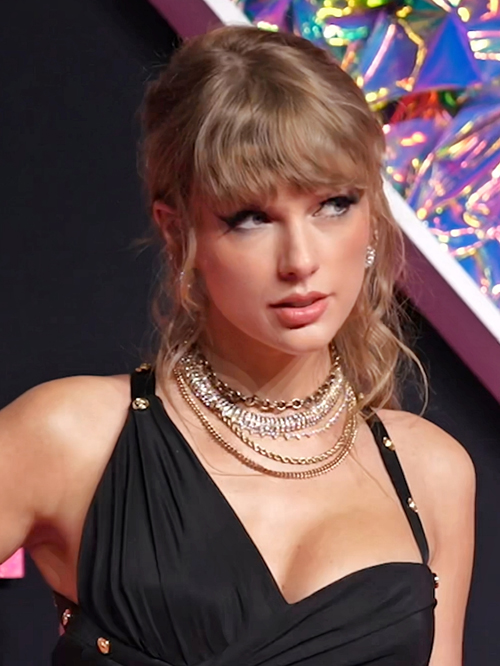
Your complimentary articles
You’ve read one of your four complimentary articles for this month.
You can read four articles free per month. To have complete access to the thousands of philosophy articles on this site, please
Articles
Taylor Swift: A Philosopher For Our Times
Susan Andrews parallels Taylor Swift with Aristotle and Socrates.
Is Taylor Swift a philosopher for our times? Could she help us understand ourselves and the world we live in? In her song ‘So High School’ on her most recent album The Tortured Poets Department, Swift sings, “You know how to ball, I know Aristotle.” Taylor Swift may seem an unlikely Aristotelian but there are notable parallels. The ancient Greek philosopher Aristotle explored the purpose of art in his work Poetics (c.335 BCE). At the time in Greece, tragedies were all the rage. He argued that the plays were a form of katharsis – a cleansing of our emotions from the bad stuff in life. Aristotle further recognised that in order to evoke emotion in an audience through drama or poetry, and so create a cathartic experience, certain features were essential. By applying key elements such as plot, character, style, song, spectacle, and thought-provoking ideas, artists can create powerful stories to move and inspire audiences. This rings true of Swift’s lyrical storytelling, too.
This is just the start of the story. Who am I? What is the authentic self? What is love? Am I free? What is the meaning of life? Philosophical questions are so vast they can seem irritating. However, a lack of self-knowledge can lead to trouble. Swift clearly explores this in her songs, when she considers how a lack of self-knowledge can get us into bad relationships, choose bad leaders, make bad choices, and lack good values. Socrates famously summed up philosophy as ‘Know Thyself’. According to Plato, Socrates concluded that wisdom lay in knowing the limits of his knowledge. Swift meanwhile divides up the discovery of the self into relatable chunks for her fans to dissect: Who am I as a friend? Who am I as an artist? Who am I as a lover? In ‘Willow’, Swift plays around with a paradox of knowledge, saying that “The more that you say, the less I know.” Meanwhile, in ‘Dorothea’, she sings, “And if you’re ever tired of being known for who you know, you know that you will always know me.”
If philosophy holds up a mirror to the human experience, then Swift can be considered not only a tortured poet but a thinker of our times. In ‘Champagne Problems’, for example, she has a sudden burst of self-awareness when she’s faced with making tough choices: “I couldn’t give a reason” she first sings, but then has a moment of clarity: “Sometimes you don’t know the answer til someone on their knees asks you.” In ‘Anti-Hero’ Swift explores her notion of self further: “I’ll stare directly at the sun but never in the mirror” – expressing how easy it is to avoid looking internally by focusing on truths outside yourself instead.

Swift 2023 MTV Video Music Awards © iHeartRadioCA Creative Commons
Philosophers, poets, songwriters, academics, theologians, scientists and psychologists have long been puzzled by what the true self is. One challenge concerns the persistence of identity: Which you is you: the person you are today, or the one of ten years ago? And who you will be in another ten years? Which era of self are you in? A folklore one? A reputation one? Fearless? Lover? In ‘Happiness’, Swift sings, “I haven’t met the new me yet”; and in ‘Mirrorball’, she sings that our sense of self is strategic – a social construct: “I’m a mirrorball, I’ll show you every version of yourself”, and “I can change everything about me to fit in.” This is a struggle of identity her young audience can relate to. Then she takes a critical look at her motives in ‘Anti-Hero’: “Did you hear my covert narcism I disguise as altruism?”
In her latest album, The Tortured Poets Department, Swift again mirrors Aristotle’s philosophy, this time concerning virtue ethics. Aristotle thought that to flourish and live a happy life you need to be virtuous, and to achieve this, you need to practice the habit of doing the right thing. We are all potentially good according to Aristotle, and we can perfect our goodness by forming right habits. Our moral character is defined by our actions, such that ‘we are what we repeatedly do’. However, being potentially good by nature, we are also potentially bad, and in ‘The Smallest Man That Ever Lived’, Swift damningly sings, ‘You are what you did’.
Self-knowledge and awareness of our reasoned choices and values is a prerequisite for Aristotelian virtue of character. Many of us don’t take the time to reflect on who we are and what we want out of life; yet as Aristotle put it, ‘Knowing yourself is the beginning of all wisdom’. Swift knows this too. What seems to connect Swift to her audience in such a powerful way is that they believe she shows them her authentic self in her art. Authenticity involves self-knowledge, self-acceptance, and courage to express yourself honestly, as is remarked on by Aristotle in his Nicomachean Ethics. So insofar as Taylor Swift inspires her fans to examine who their true selves are and live in alignment with that, then she surely can be called a philosopher for our times.
© Susan Andrews 2024
Susan Andrews teaches philosophy at Temple Carrig School, Greystones, Ireland, and is the co-writer of the Junior Cycle Philosophy curriculum: oide.ie/post-primary/home/short-courses/philosophy-junior-cycle/.









